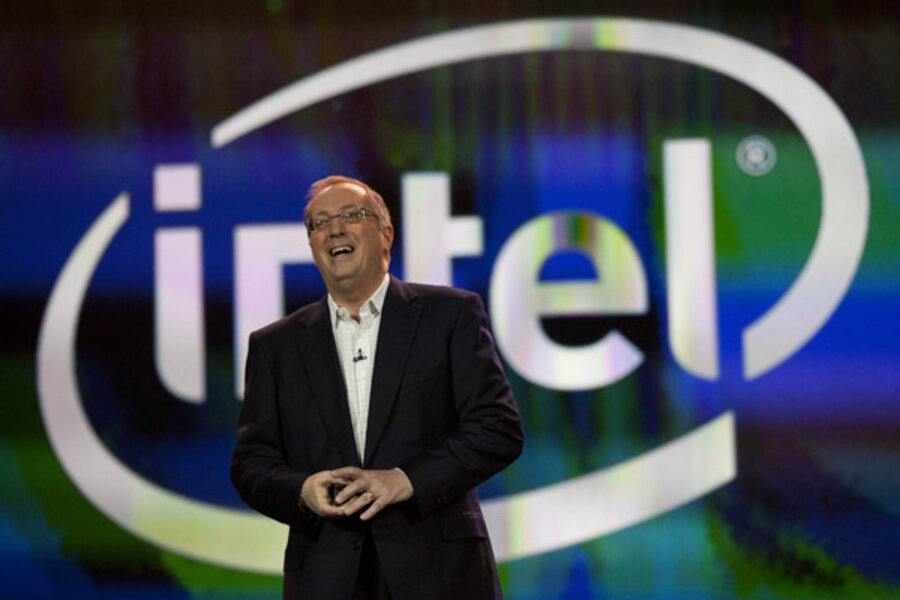Intel CEO announces surprise retirement
Loading...
| SAN FRANCISCO
Intel CEO Paul Otellini is retiring in May, giving the world's largest maker of microprocessors six months to find a new leader as it tries to navigate a shaky economy and adapt to a shift toward mobile devices that has reduced demand for its computer chips.
Although Otellini's impending departure was announced Monday, he notified Intel Corp.'s board of his retirement plan last Wednesday. The decision caught the board by surprise because Intel's protocol typically calls for its CEOs to step down when they turn 65. Otellini is 62.
"The decision was entirely Paul's," said Intel spokesman Paul Bergevin. "The board accepted his decision with regret."
Otellini will be ending a nearly 40-year career with Intel, including an eight-year stint as CEO. He joined the Santa Clara, California company after graduating from the nearby University of California at Berkeley and worked his way up the ranks before succeeding Craig Barrett as CEO in 2005.
Intel's board plans to consider candidates inside and outside the company as it searches for Otellini's successor. Otellini will be involved in the search.
Otellini and the four other men who have been Intel's CEO have all been promoted from within. The company's board is believed to be leaning in that direction again.
Intel identified the leading internal candidates Monday by anointing three of Otellini's current lieutenants as executive vice presidents. They are: Renee James, head of Intel's software business; Brian Krzanich, chief operating officer and head of worldwide manufacturing; and Stacy Smith, chief financial officer and director of corporate strategy.
If recent history is any indication, Krzanich has the inside track to become Intel's CEO. Both Barrett and Otellini served as chief operating officer before becoming CEO.
Intel's chips have become even more dominant in the personal computer market during Otellini's reign, helping to boost the company's annual revenue from $39 billion in 2005 to $54 billion last year.
But Intel's future growth has become muddled as the computing market tilts toward smartphones and tablet computers, undercutting the demand for the desktop and laptop machines that have been the foundation of Intel's success for the past 30 years.
Many smart phones and tablets rely on a technology licensed from British chip designer ARM. Other chipmakers such as Qualcomm Corp. have developed less expensive microprocessors that have eclipsed Intel in the smart phone market.
As a result, Intel is scrambling to catch up in the increasingly important mobile computing market, raising doubts among investors about the company's future prospects. Intel's stock has fallen about 15 percent so far this year. The stock gained a penny, hitting $20.20 in Monday's afternoon trading.
Like many other large technology companies that do a lot of business outside the U.S., Intel has been recently hurt by the weakening economy in Europe and China. The company blamed the poor economy for a 14 percent drop in its earnings during its most recent quarter.







